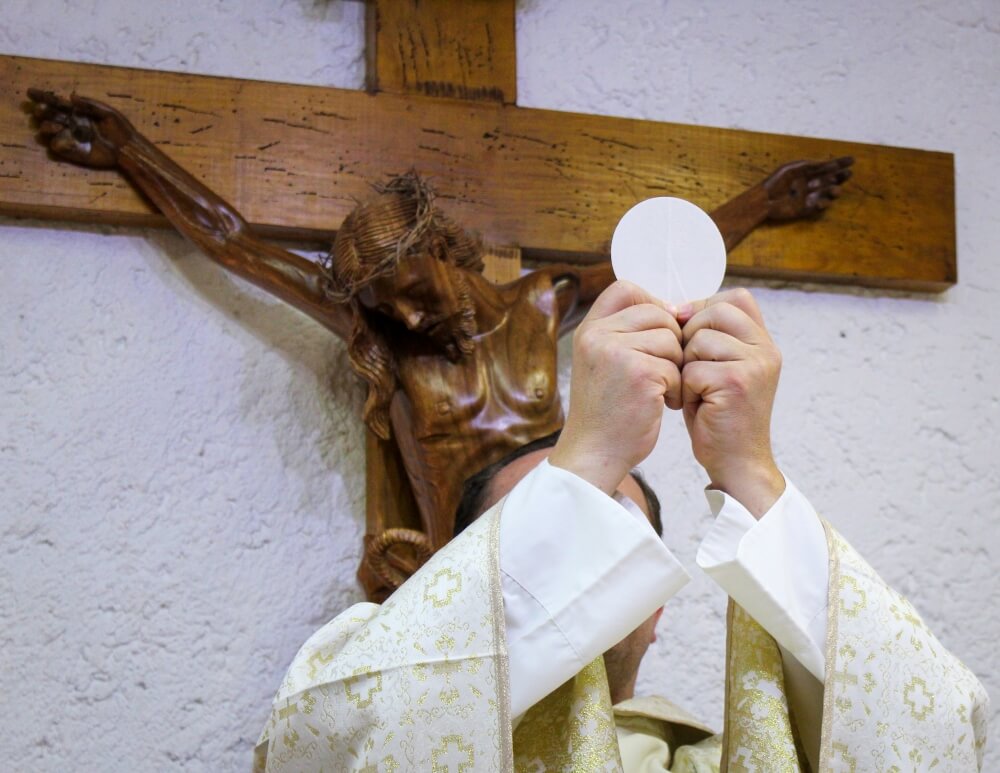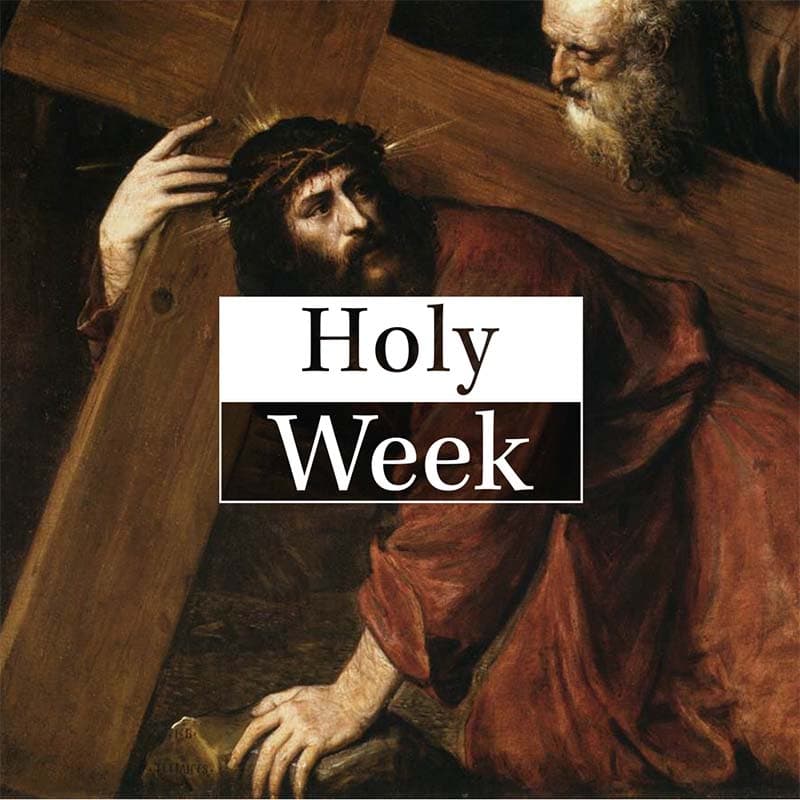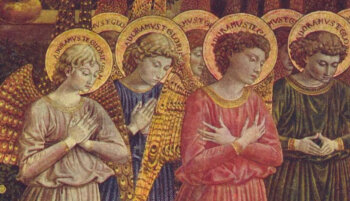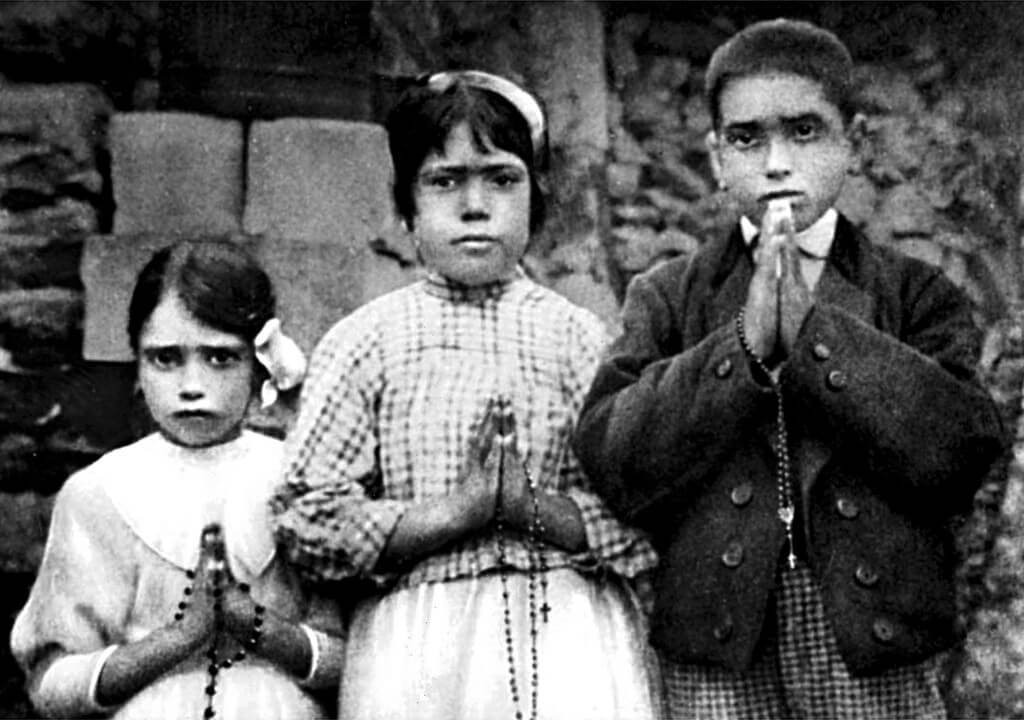
What does fasting fix?
In the United States, we are obligated to fast twice a year: on Ash Wednesday and Good Friday.
Many of us will obediently fulfill this, but the question still remains: why?
We may have heard that it’s not simply something painful to “offer up,” but that fasting actually has benefits for the one making the fast.
So what are these benefits? What does fasting do for me?
To put it simply—when you fast, you are healing your very self and strengthening your soul.
Here’s how.
The Three Benefits of Fasting
The Catechism of the Catholic Church (CCC) 1430 tells us that the Church has us offer up all types of penances to visibly demonstrate our interior conversion of heart. A few paragraphs later, the Church tells us some of the forms that this penance takes, and how these forms are specially formulated to heal and strengthen our souls.
In seasons of penance, the Church exhorts her children to the traditional practices of prayer, fasting, and almsgiving.

These are most commonly known to be penitential acts that drive out “bad things”—sin, temptation, and the devil—but they do not merely get rid of the bad.
They bring in the good as well.
These three practices repair the three types of relationships that are wounded by our fallen nature:
- Prayer helps heal our relationship with God
- Fasting helps heal our relationship with ourselves
- Almsgiving helps heal our relationship with our neighbor
CCC 1434 spells it out for us:
Scripture and the Fathers insist above all on three forms [of interior penance], fasting, prayer, and almsgiving, which express conversion in relation to oneself, to God, and to others.
If we look carefully, the people listed here are the same ones required for us to fulfill the two greatest commandments: to love the Lord our God with our whole heart, soul, mind, and strength, and to love our neighbor as ourselves.
So, yes, fasting heals these relationships…but how?
One of the effects of Original Sin in our person is that our bodily faculties are no longer under perfect control of our spiritual faculties (CCC 400). Fasting helps teach and remind us that we are more than our bodies, that we are created for greater things in the afterlife. Benedictine monk Fr. Adalbert de Vogüé summarizes St. John Cassian’s teachings on fasting as follows:
As an efficacious sign of detachment from the world and attachment to God alone, it is part of the condition of regenerated man, on his march towards the Kingdom.
Fr. Adalbert de Vogüé, To Love Fasting
And it is in looking to the kingdom that we can find a very easy connection between fasting and the three theological virtues.
Fasting for Hope
Faith, hope, and charity find their parallel in the three penitential practices of prayer, fasting, and almsgiving. We can easily connect prayer with increasing our faith and almsgiving with increasing our charity (which is the name we use for many not-for-profit institutions). This would leave fasting to increase our hope, and it fits the bill perfectly.
Fasting is a testimony to our true Christian hope in the resurrection of the body. St. Paul talks about this in Romans 8:24:
…even we ourselves groan within ourselves, waiting for the adoption of the sons of God, the redemption of our body, for we are saved by hope.
Fasting informs our body that we are made for a higher purpose than mere physical flourishing—we are here to participate in the life of grace, to share in the very life of God.
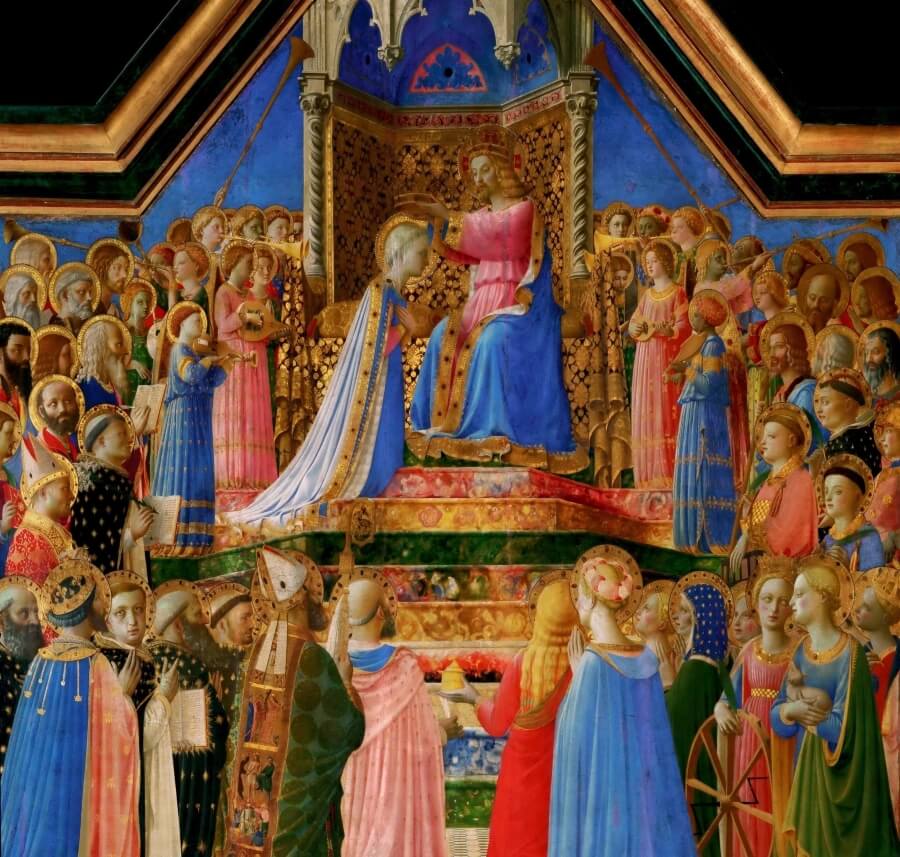
the celestial life we are meant for
As prayer is the means that lifts our soul to God, fasting is the means that lifts and offers our bodies to God. In these times of penance, as we live in a fallen world and suffer the consequences of sin, we are reminded that we are preparing ourselves for when we shall be face to face with Christ, at our personal judgment or in His second coming. Fr. de Vogüé writes:
…the interruption of the fast appears as a sign of Christ’s presence, and correlatively, the fast is connected with his absence.
Fr. Adalbert de Vogüé, To Love Fasting
This finds its root in the words of Our Lord Himself:
“The wedding guests cannot mourn as long as the bridegroom is with them, can they? The days will come when the bridegroom is taken away from them, and then they will fast.”
Matthew 9:15
If we explore further in Scripture, we find another fascinating purpose to fasting, one that we see in many different books of the Bible.
Making Room for God
Throughout the Scriptures, fasting is done in anticipation of approaching God and seeking an answer from Him.
In the Old Testament, Moses fasted before receiving the Ten Commandments (Deuteronomy 9:9-18), Ezra had the Israelites fast “that we might…seek from him the right way for us” (Ezra 8:21), and Daniel fasted, asking God to understand the vision he received (Daniel 10:1-3), among many other cases.
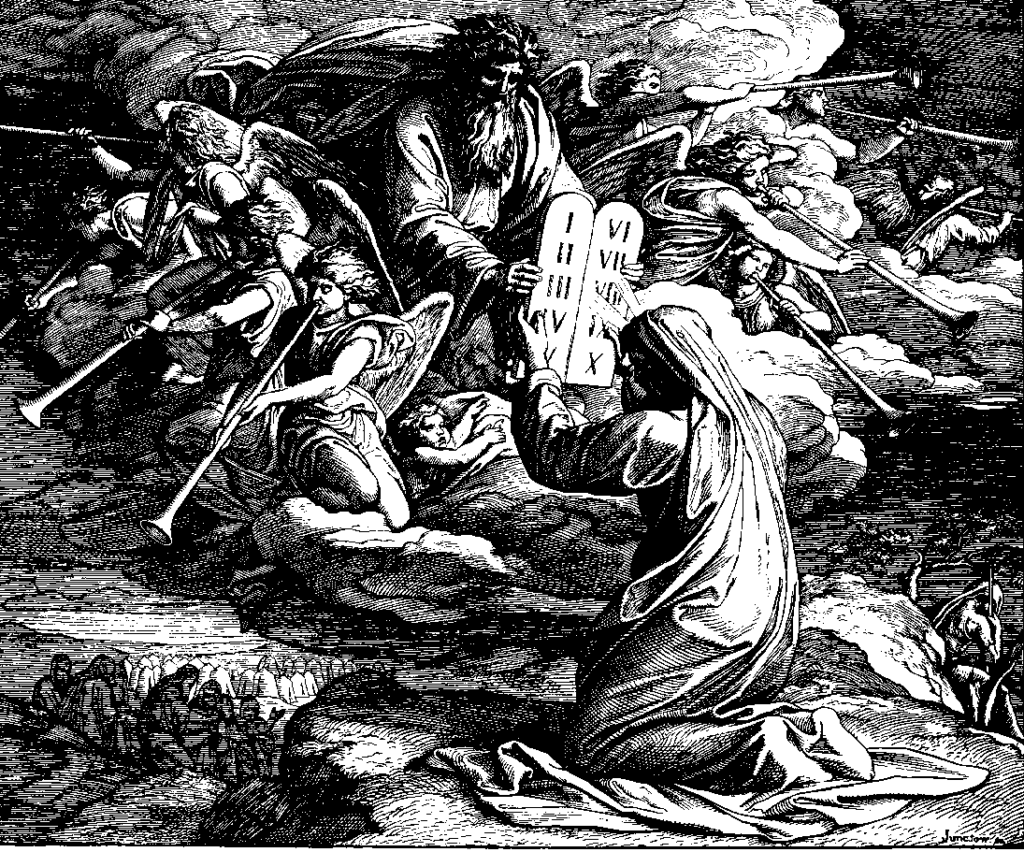
This continues in the New Testament. Anna “served God with fastings and prayers night and day” as she stood in the temple, waiting for the promised Messiah (Luke 2:36-37), Paul fasted after his conversion on the road to Damascus (Acts 9:1-9), and the Apostles fasted when seeking God’s will in directing the Church (Acts 13:2-3 and Acts 14:23).
When we fast, we are, in a way, literally making room for God in our stomachs, the center of our body. To paraphrase St. John the Baptist, we must decrease so that He can increase.
It may sound funny, but that hole we feel in our stomach from a lack of food is our prayer inviting God to fill it. When we feel that pang of hunger, we are offering in our bodies that prayer found at the very end of the Bible: “Come, Lord Jesus” (Rev. 22:20). When we are in the presence of God, we eat, rejoice, and be merry at the wedding feast of the Lamb, but when we are separated from Him—whether by sin or because we are about to enter His presence—we make space in our bodies for God’s holy presence.
Our fast before Mass comes from this ancient understanding. When we fast before receiving the Eucharist, we do so to actively inform our bodies that Christ is not present within us in the sacramental sense, but that He is coming soon and we are preparing our souls for His arrival in a short manner of time.
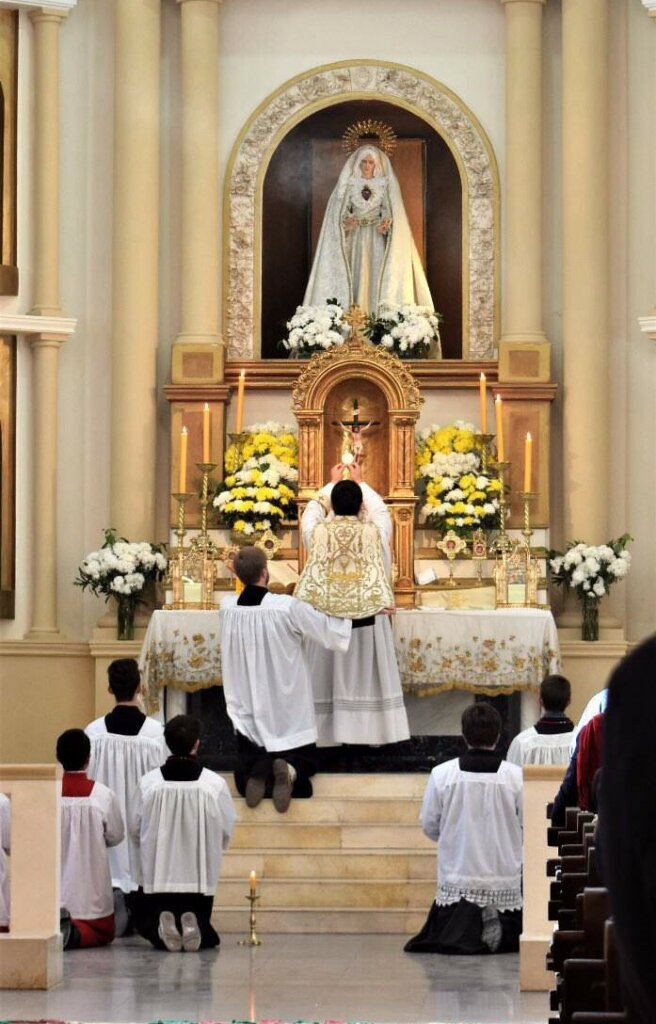
In light of this, it makes sense why the bishops here in the United States have us fast on Ash Wednesday and Good Friday. Looking at the Church’s tradition, we can see that this is to remind us that Christ is coming soon on Easter, and that we must prepare our hearts for Him on these two greatest days of penance. And it is these two days of fasting that will help us fulfill one of the Church’s laws: to receive Holy Communion worthily during the Easter season (Code of Canon Law #920).
These two days of fasting are to help us to make room for Christ, to greet the resurrected Lord with our whole being, and to grow in faith, hope, and charity by that worthy reception of our Eucharistic Lord.
To Love Fasting
So we can see that the Church, through the Scriptures and the Fathers, tells us that fasting heals (among other things, of course) our relationship with our very selves.
Fasting is not merely a negative thing or a punishment—it is, in effect, spiritual exercise. Lifting weights or going for a run are not simply punishments—rather, we do these things to strengthen the body and soul by pushing the body to its limits. So too does fasting have positive effects. In fact, St. Benedict, in the fourth chapter of his Rule, tells his monks “to love fasting” as one of the first listed instruments of good works, right after following the Ten Commandments.
Fr. de Vogüé summarizes the benefits of fasting well:
While fasting by its nature purifies soul and body, in addition, it is for the Christian a combat in company with Christ in the desert, the commemoration of the Bridegroom’s departure, and waiting for his return.
Fr. Adalbert de Vogüé, To Love Fasting
So when we are united to the universal Church in fasting this Good Friday, let us know that what we do is for our own good and not merely a penal act. We are not only restoring order in our own bodies so that they testify to our hope in the resurrection of the body. We are also making room in our hearts for Christ’s arrival in our souls when we receive Him in the Eucharist at Easter.
This Good Friday, let us love our fast, knowing that by doing so we are proclaiming through our very being that Christ will be coming to us quickly in a Eucharistic Easter to call us to rise with Him.
